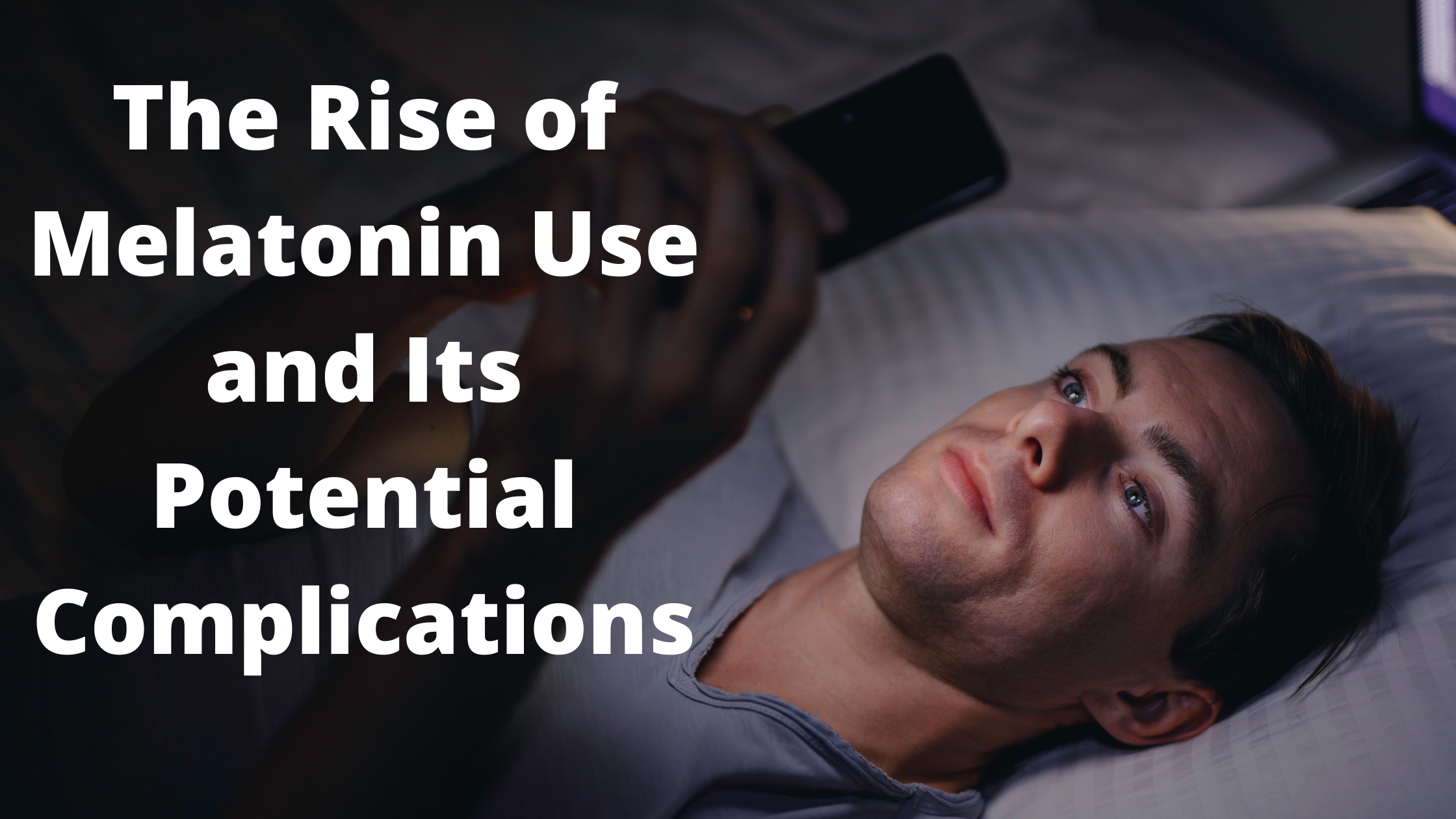
The pandemic has come with its fair share of troubles, and sleep has been no exception. People all over the world have been struggling to get a good sleep pattern due to a variety of reasons. Schedules are simply not the same, and with the blending of home and work environments, it can be difficult to relax enough in your sleeping environment to get solid rest. This has led to a rise in the use of melatonin. However, melatonin is not the cure-all supplement for sleep that it seems. Here we will discuss the rise of melatonin and its potential complications.
What is melatonin?
Melatonin is a hormone that is produced by the pineal gland in the brain. It is triggered by a decrease in light sensed by the retina, which is a group of cells in the back of the eye that monitor the amount of light taken in. In the morning, the retina triggers cortisol release, which helps the other organs prepare for the day. At night, it triggers melatonin release, which helps the body prepare for sleep.
Melatonin is available in supplement form to help those who need a little extra assistance in falling asleep. It is over the counter and does not require a prescription. Most supplements are available at local grocery stores.
Use of melatonin
Melatonin use has more than doubled in the past decade. The pandemic may further increase the widespread reliance on sleeping aids. Normally, they are best used for short-term assistance for jet lag, shift workers, and those who have occasional trouble falling asleep. Melatonin is also helpful for older adults who have trouble going to sleep due to a decrease in melatonin as we age.
Problems with increasing melatonin use
Melatonin has been linked to side effects like headaches, dizziness, nausea, stomach cramps, drowsiness, confusion or orientation, irritability, mild anxiety, depression, and tremors, as well as abnormally low blood pressure. Melatonin also has interactions with other medications and can trigger allergies.
The other problem with melatonin is that the standard dose of 5 mg a day is often not adhered to. Part of the problem is that melatonin is not regulated, and therefore, the supplements often contain a much more varied amount of melatonin than what they say on the bottle. Also, some melatonin supplements have been found to have traces of serotonin in them. This means that if you are already on a medication, like selective serotonin reuptake inhibitors (SSRIs), this can cause increased problems like serotonin serum sickness.
Melatonin is not a supplement or a herb, but a hormone that is already produced by your body. Just because it is natural, however, does not mean that the exogenous form is harmless. The long-term effects of melatonin on adults and children are unknown, and more data are needed. Until more information comes out, it's best to find alternatives to sleep aids.
Training your brain to sleep
Babies are not the only ones who need to be sleep trained. Adults, as well, need to be trained on how to get good sleep. It's important to establish and improve your sleep hygiene in order to get good sleep. Sleep hygiene consists of your sleep routine and your sleep environment, as well as other behaviors that you do throughout the day that can impact your ability to get good sleep.
Examples of ways you can improve your sleep include decreasing your exposure to blue light right before bed, ensuring that your sleep environment is dark, cool, and quiet, and establishing a sleep routine that helps you wind down. These activities can include baths, reading, spending time with loved ones, meditation, stretching, and other activities that reduce your heart rate and prepare your brain for bed.
If you still have trouble after making these changes, then you should talk to a sleep health expert. Our facility has plenty of professionals who would love to assist you. Please click the orange button below in order to take a free online sleep test and speak with one of our health professionals to get assistance as soon as possible.
Good sleep is vital, and it's important that you make necessary changes to improve your sleep if you are having persistent problems.
https://alaskaregional.com/blog/entry/4-reasons-to-be-cautious-about-melatonin

